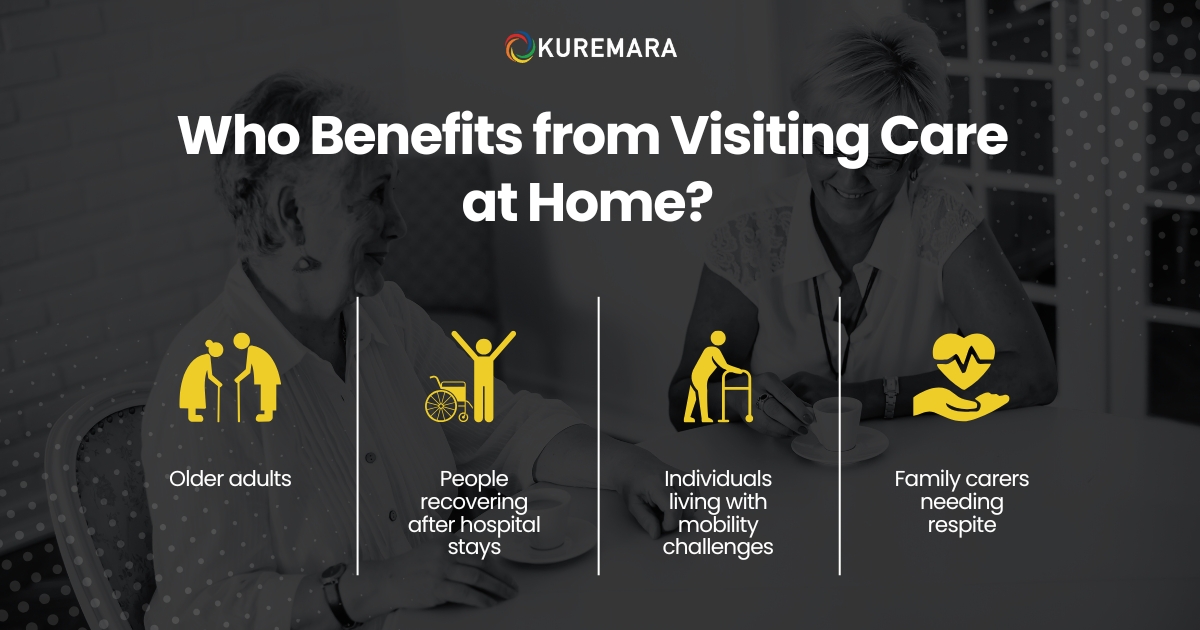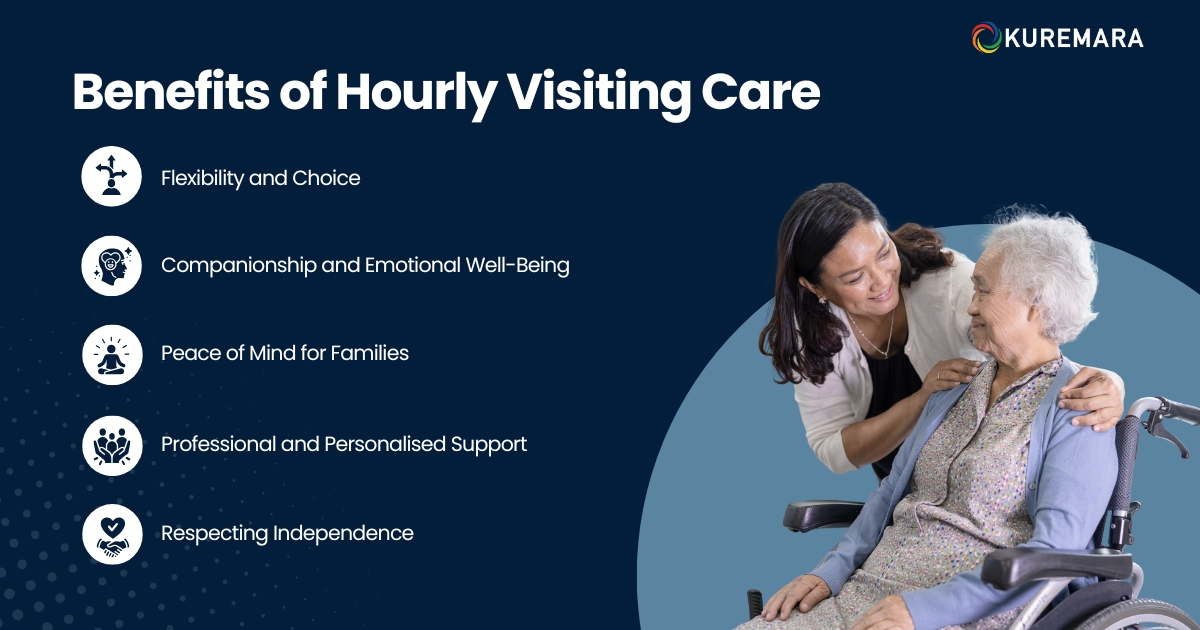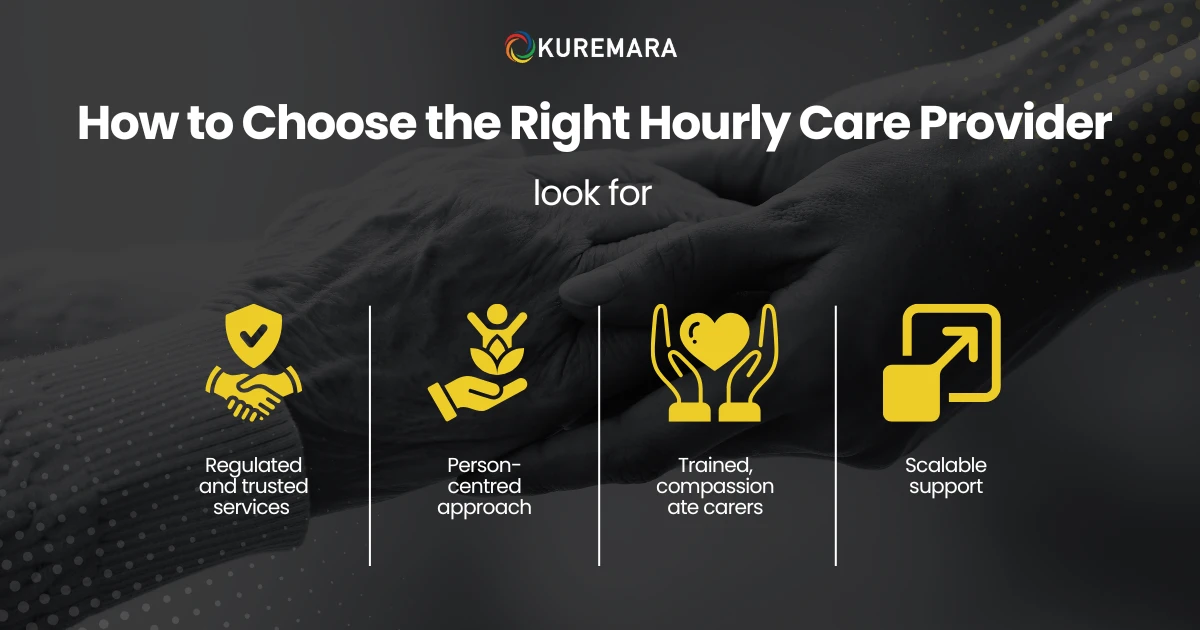
Sometimes it’s the little things that make the biggest difference, helping with preparing a meal, a friendly chat, or someone to check in and make sure everything feels safe at home. For many people across the UK, hourly visiting care provides this kind of meaningful support. Rather than moving into a care home or committing to live-in support, individuals and families are finding that small, flexible visits can deliver independence, reassurance, and comfort right where it matters most at home.
This article explores what visiting care is, who benefits from it, the key advantages, and how families can choose the right provider.
What Is Hourly Visiting Care?
Hourly visiting care (sometimes called domiciliary care or hourly care services) is a type of support where a trained carer visits a person at home for an agreed period often between 30 minutes and a few hours. These visits can be scheduled once or multiple times a day, depending on individual needs.
The service is highly flexible. It might include assistance with personal care, meal preparation, light housework, companionship, medication reminders, or simply offering a safe presence for someone living alone. Unlike live-in care, families only pay for the support they require, making it a cost-effective and personalised option.
Why It Matters: The Current UK Landscape
- Around 820,000 people in the UK receive domiciliary care, of which many are hourly visits, serving clients across all nations of the UK. (Sources: PolicyBee)
- The sector employs over 690,000 care workers, and is a major cornerstone in adult social care. (Sources: PolicyBee)
- In 2023/24, England’s local authorities spent an average of £71 per hour on home care services—highlighting hourly care as a cost-aware alternative to residential care. (Source: PolicyBee)
These numbers show how much the UK relies on care-at-home services, and why flexible hourly visits play a vital role in keeping individuals independent and safe.
Who Benefits from Visiting Care at Home?

Hourly care is designed to fit around people’s routines, making it suitable for a wide range of circumstances:
- Older adults who value independence – staying at home but needing occasional support.
- People recovering after hospital stays – ensuring a safe transition back to everyday routines.
- Individuals living with mobility challenges – receiving tailored help without losing autonomy.
- Family carers needing respite – knowing their loved one is supported while they rest or work.
Whether it’s visiting care at home for a few days, weeks, or as part of a long-term plan, the service provides reassurance for families and dignity for those receiving care.
The Benefits of Hourly Visiting Care

Choosing hourly care services offers a balance of independence and assistance. Key benefits include:
1. Flexibility and Choice
Care is designed around personal preferences. Visits can be arranged in the morning, afternoon, evening, or even overnight if required. This flexibility allows individuals to maintain routines while getting just the right amount of help.
2. Companionship and Emotional Well-Being
Beyond practical help, visiting carers provide valuable social interaction. A conversation over tea or a walk to the local park can help reduce feelings of isolation and boost confidence.
3. Peace of Mind for Families
Knowing that a professional carer will be visiting brings reassurance. Families can be confident their loved one is safe, supported, and encouraged to enjoy daily life.
4. Professional and Personalised Support
Carers are trained to meet a wide range of needs, from help with mobility to medication reminders. The support is personalised, meaning every visit is focused on what matters most to the individual.
5. Respecting Independence
The greatest benefit of visiting hourly care is the ability to remain at home. People are supported to live life on their own terms, with dignity and control.
Common Misconceptions About Hourly Visiting Care
Despite its many advantages, some families hesitate to consider hourly care because of misunderstandings:
# “Short visits won’t make a difference.”
In reality, even 30 minutes of focused, supportive care can brighten someone’s day and ensure safety.
# “It must be too expensive.”
On the contrary, hourly care allows families to pay only for the support they need, avoiding the higher costs of full-time arrangements. To see how flexible plans can suit different budgets, visit our Costs and Funding page for detailed guidance.
# “It’s only for older adults.”
Hourly visiting care is suitable for anyone who needs flexible, personalised help at home, regardless of age.
Symptoms and Situations Hourly Visiting Care Supports
Families often start considering care when they notice certain signs, such as:
- Struggles with daily self-care tasks like washing, dressing, or preparing meals.
- A loved one appearing lonely, withdrawn, or less socially active.
- Concerns about safety at home, forgetting medication, leaving appliances on, or risk of falls.
- Short-term needs following hospital discharge, surgery, or illness recovery.
In each case, hourly care provides targeted support that helps bridge the gap between independence and full-time care.
When Hourly Care May Not Be Enough
While hourly care suits many, there are situations where families may need to consider more intensive support. Intensive care visiting hours are useful, but if someone requires round-the-clock assistance, such as continuous overnight supervision or specialist nursing, live-in care or complex care arrangements may be more appropriate. Providers like Kuremara can guide families in understanding these transitions.
How to Choose the Right Hourly Care Provider

Finding the right service is about more than ticking boxes. Look for:
- Regulated and trusted services – ensure providers are CQC-regulated in the UK.
- Person-centred approach – care plans should be built around individual preferences and lifestyles.
- Trained, compassionate carers – a balance of professionalism and empathy makes all the difference.
- Scalable support – the ability to increase or reduce hours as needs change.
Kuremara takes pride in offering tailored hourly care services across the UK, with carers who bring not just skills, but warmth and reliability into every visit.
Conclusion
A little help really can go a long way. Hourly visiting care provides the flexibility, companionship, and practical support that allows people to live safely and happily in their own homes. For families, it offers peace of mind; for individuals, it protects independence and dignity.
At Kuremara, we believe every visit matters. Whether it’s a daily check-in, a few hours of companionship, or regular help with household tasks, our carers are here to make life easier, brighter, and more fulfilling.
Ready to explore how hourly visiting care could help your loved one?
Contact Kuremara today for a personalised consultation and discover the difference a little support can make.



